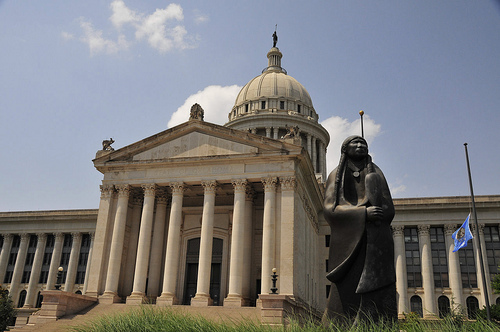The Oklahoma Supreme Court rejected earlier this week an initiative that would have defined a fertilized egg as a person, unanimously agreeing that the personhood initiative was “clearly unconstitutional.”

The court’s decision comes on the heels of the defeat of a personhood bill in the state legislature, where Republican leaders kept the bill from coming up for a vote before it adjourned last week.
The decision is not binding on any other state, but it could be a bellwether for future court challenges. Compared to other state courts, the Oklahoma Supreme Court is a moderate court, far from the more liberal courts of Hawaii and the northeastern states but also more moderate than the conservative courts in the South.
The unanimous verdict, however, is important. Even the most conservative members of the court agreed that the personhood initiative violated U.S. Supreme Court precedent and was therefore unconstitutional.
The decision likely means that other state courts will also decide that other personhood legislation and initiatives are unconstitutional.
Oklahoma’s court examined the potential initiative after The Center for Reproductive Rights asked the Court to rule on its constitutionality. Oklahoma law allows the courts to review initiatives even before petitioners start gathering the 155,000 signatures needed to put an initiative on the ballot. The court can block a potential initiative that is, on its face, unconstitutional and would result in a “costly and futile election.”
Initiative Petition 395, State Question 761 would have defined a “person” in the state constitution as “any human being from the beginning of the biological development of that human being to natural death.”
The decision puts an end to the initiative process before it could start. The preemptive decision by the Court left proponents of the personhood amendment without a clear strategy for how to proceed.
Dan Skerbitz of Personhood Oklahoma told the Tulsa World that his organization is “disappointed.”
“We are looking over our legal options at this moment, and we will follow up with those if there are any,” Skerbitz said.
The court decision is part of a larger debate over personhood in Oklahoma. Last week, the Republican leaders in the Oklahoma House kept a personhood act from being considered before the legislature adjourned.
Before the court’s decision, 22 legislators had tried to extend the session by voting against adjournment. Oklahomans for Life and Personhood Oklahoma took aim at 57 legislators who voted to adjourn, labeling them “pro-abortion representatives.” After protests from pro-life legislators and a strong rebuke from House Speaker Kris Steele, the groups apologized and rescinded their decision to use the adjournment vote as a litmus test on abortion.








